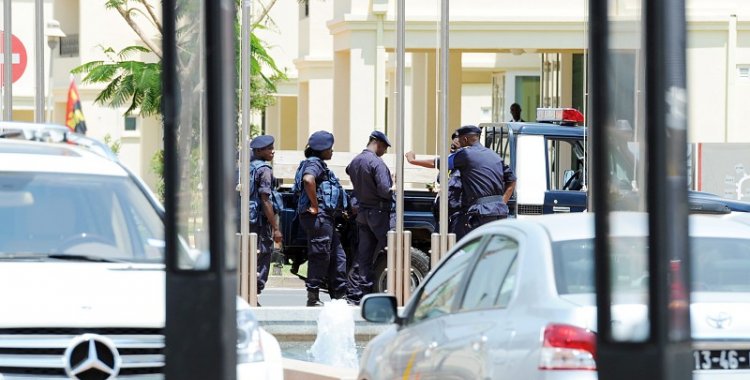"Few trust the police and even fewer feel that they operate in a professional manner and respect the rights of citizens. These public perceptions highlight the main challenges facing the Government in building a republican police force that is professional and credible, prepared to carry out with zeal and abnegation of the tasks entrusted to them", says the research to which Lusa had access.
The Afrobarometer team in Angola, led by Ovilongwa – Estudos de Opinião Pública, interviewed 1200 Angolan adults, between February 9 and March 8, 2022, about Africans' experiences and assessments of police professionalism.
The feeling of insecurity was reported by six out of ten Angolans (63 percent), who felt unsafe walking in their neighborhood at least once during the previous year, while 54 percent said they feared crime at home at least once, further revealing the research that insecurity and fear are more common experiences in cities than in rural areas.
The main findings of the study highlight that, among citizens who sought police assistance in the previous year, 41 percent say they paid a bribe ("gasosa") and that 37 percent of those who encountered police elsewhere had to pay a bribe "to to avoid problems".
"Nearly half (45 percent) of Angolans say that "most" or "all" police officers are corrupt, the worst ranking among the 12 institutions and groups of leaders covered by the survey.
"Perceptions of widespread police corruption increased by six percentage points compared to 2019," the study highlights.
Another criticism of the police service, the document adds, has to do with traffic control, on which two thirds of Angolans (66 percent) said that "often" or "always" the authorities stop drivers without a "good reason".
With regard to police action in peaceful demonstrations, most respondents "say that the police use excessive force during demonstrations (57 percent)".
With criminal suspects, respondents (55 percent) considered that the police also use excessive force, while "nearly four in ten (38 percent) say that the police frequently engage in criminal activity".
"Less than two out of ten Angolans (18 percent) say that the police "frequently" or "always" act in a professional manner and respect the rights of all citizens", stresses the document.
On gender-based violence, the survey shows that "the majority (59 percent) of citizens consider it likely that the police will take complaints of this type seriously."
More than two-thirds (68 percent) of Angolans described the government's performance in reducing crime as "fairly bad" or "very bad", indicates the survey.
In a note, Afrobarometer recalls that Amnesty International and human rights groups documented, between March and September 2020, ten murders committed by the police and military in Angola, including five minors aged between 14 and 16 years.
"While accusations of police brutality are not new in Angola, critics have compiled dozens of recent cases of excessive force, arbitrary arrest and extrajudicial execution by police, often as part of the crackdown on public protests related to covid-19 restrictions, conditions conditions and political rights (Human Rights Watch, 2020; Amnesty International, 2022; Marques de Morais, 2018)", highlights Afrobarometer.
The latest survey on the subject was carried out in Angola in 2019 by Afrobarometer, a "pan-African and non-partisan network that provides reliable data on African experiences and assessments of democracy, governance and quality of life".
According to the organization, eight research rounds have been completed in 39 countries since 1999, with the 9th round (2021/2023) being concluded in 2023.







